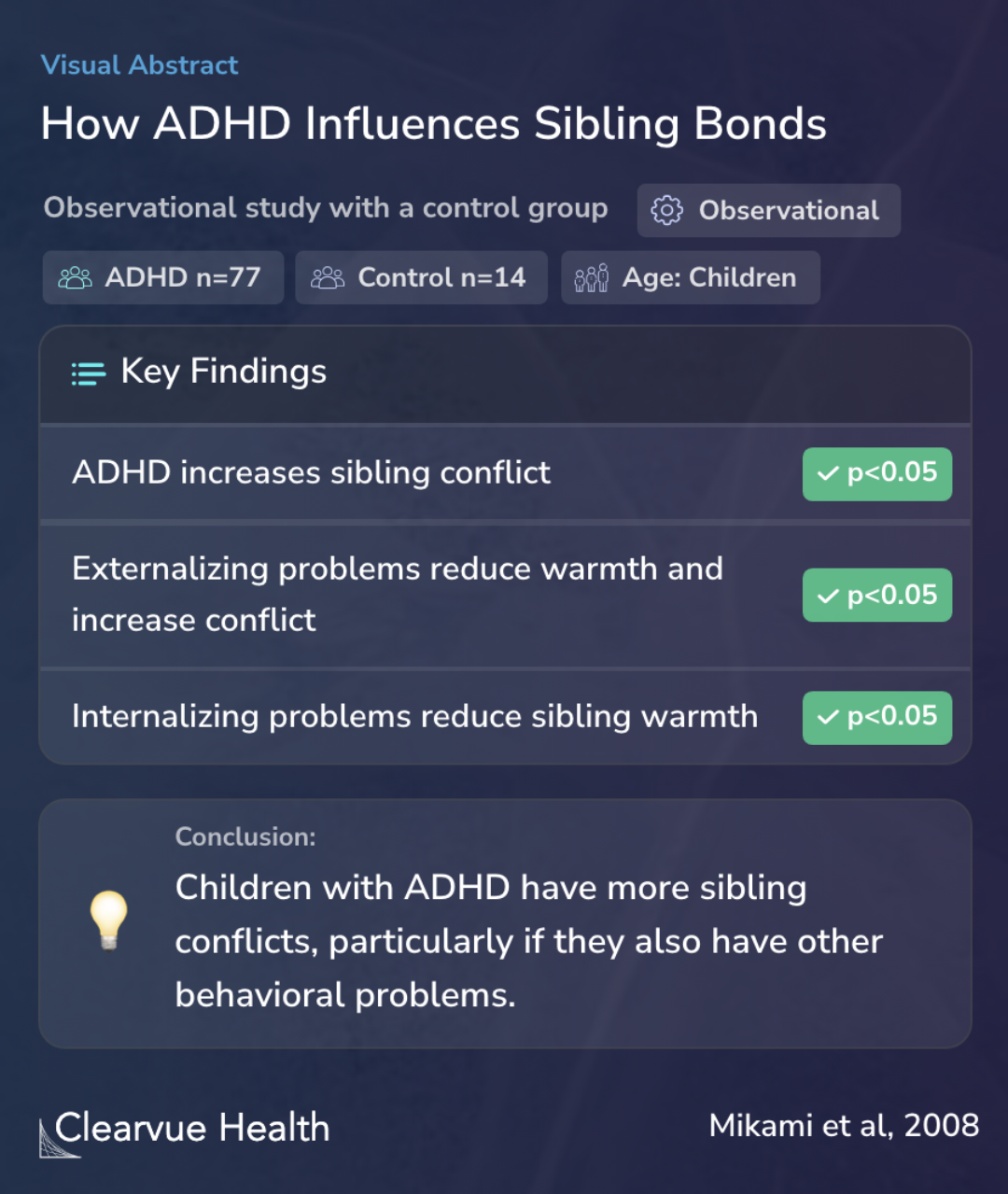Sibling relationships among children with ADHD
How ADHD Influences Sibling Bonds
Mikami AY, Pfiffner LJ

Objectives
The study embarked on examining how ADHD impacts sibling relationships, with a deeper look into how associated externalizing and internalizing issues might further affect these dynamics. Externalizing behaviors are about acting out towards the outside world, which might include aggression or rule-breaking. Internalizing behaviors, on the other hand, are about keeping distressing feelings like sadness or anxiety inside. Understanding these behaviors is crucial, especially for those working with children, as they influence academic performance, social interactions, and self-perception.
This study investigated the quality of sibling relationships among children with ADHD relative to those without ADHD. Additional analyses examined whether externalizing and internalizing problems comorbid with ADHD affected sibling relationships.
Methods
In this study, 77 children with ADHD and 14 children without any reported problems participated. To understand their sibling relationships, the research gathered information from three sources: the children themselves, their mothers, and their siblings. This approach provided a well-rounded view of the sibling dynamics from different perspectives.
Participants were 77 children with ADHD and 14 nonproblem control children. Sibling relationships were assessed via three informants: mother report, self-report, and sibling report.
Results
The findings revealed that children with ADHD tend to have more conflicts with their siblings compared to those without ADHD. When ADHD was accompanied by externalizing problems, there was even less warmth and more conflict in these sibling relationships. This suggests that the behavioral challenges associated with ADHD can spill over into family life, affecting bonds between brothers and sisters. Additionally, internalizing problems were linked to a decrease in warmth within the sibling relationship, indicating that emotional struggles can also strain these connections.
In analyses utilizing hierarchical linear modeling to combine data from the three informants, children with ADHD showed increased conflict in sibling relationships, relative to nonproblem children. Comorbid externalizing problems were associated with less warmth/ closeness and increased ...
Conclusions
The study underscores the importance of considering sibling relationships when exploring the social challenges associated with ADHD. It highlights that ADHD doesn't just affect the individual but also their family dynamics, particularly with siblings. This insight is supported by other research findings, which suggest that empathy and social understanding, often challenged in those with ADHD, are crucial for maintaining healthy relationships.
It is recommended that sibling relationships be incorporated into theories of social impairment in ADHD.
Key Takeaways
Context
Other studies have shown that children with ADHD may struggle with empathy, which can contribute to relationship challenges. This lack of empathy and perspective-taking can make it difficult for them to understand and connect with their siblings, potentially leading to more conflicts.
Moreover, ADHD's impact extends beyond sibling relationships to other interpersonal connections, such as romantic relationships during adolescence. Research indicates that teenagers with ADHD tend to have more partners and engage in intimate relationships earlier than their peers, suggesting that ADHD influences various aspects of social and relational development.